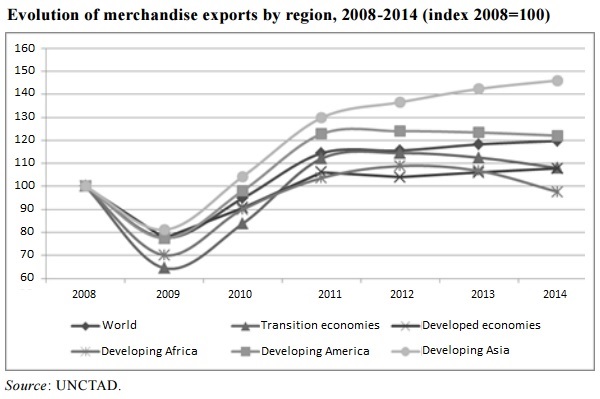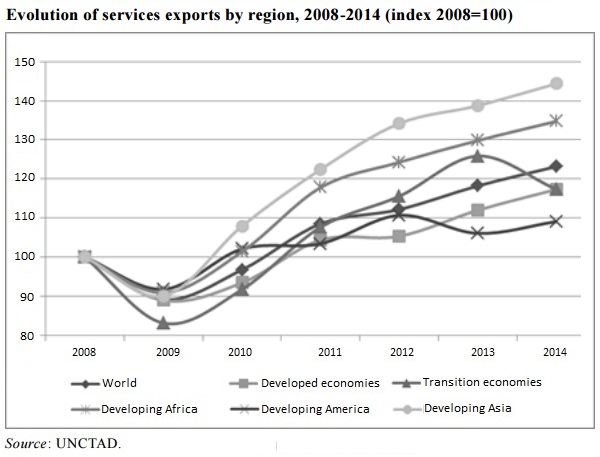News
Uneven trade is a persistent development challenge requiring policy attention, said UNCTAD before the UN General Assembly

UNCTAD presented its report on international trade and development before the United Nations General Assembly, highlighting the trade inequality that persists between countries and warrants urgent policy attention.
From 26 to 28 October, the Second Committee of the 70th session of the United Nations General Assembly discussed macroeconomic policy questions, examining how international trade, the international financial system, external debt sustainability and commodities can contribute to development. UNCTAD contributed extensively to the debate.
As part of the discussion, UNCTAD presented the main findings of its Report of the Secretary-General on international trade and development on 26 October.
The report found that world trade increased by a modest 3.2 per cent in 2014, and is expected to grow by 3.8 and 4.8 per cent in 2015 and 2016. Importantly, goods exports represented more than twice the combined inflows of foreign direct investment, official development assistance and remittances, showing the potential of trade as a tool for development.
“But is international trade dynamic enough to live up to its potential?” asked the Director of UNCTAD’s Division of International Trade in Goods, Services and Commodities, Guillermo Valles, as he presented the report. In other words, is trade working for developing countries?
The general findings were positive: developing countries have increased their share in merchandise exports from 32 to 45 per cent since 2000. Particularly encouraging was the increased share of least developed countries, which doubled during the same period.

But these trends mask important variations. Although the exports of 34 developing countries grew at an annual rate of 10 per cent over the past decade, 78 faced persistent trade deficits and 3 reported export contractions during the same period. The report also highlighted that the largest 20 exporting countries – mainly developed economies – accounted for 71 per cent of world exports in 2014.
Referring to these statistics, the representative speaking on behalf of land-locked developing countries stressed that “global trade has displayed little dynamism, and the observed growth in volume is largely attributed to North-North trade, with only limited positive effects on exports from developing to developed countries”.
Mr. Valles concluded that “this uneven trade reminds us that inequality between and within countries remains a persistent development challenge requiring policy attention”. He reiterated UNCTAD’s view of the importance of export diversification.
In this regard, the report highlighted the potential of services as a source of export diversification. The report also showed that the services sector has been the most effective in creating new jobs in developing countries.

A particular element in the services trade that stood was the flow of global remittances, which stood at 583 billion dollars in 2014, 75 per cent of which went to developing countries.
In fact, the report found that after official development assistance remittances were the second most important source of external finance for least developed countries, behind official development assistance. Public policy should therefore facilitate remittances and reduce transfer costs.
“A 10 per cent rise in remittances could help reduce by 3.5 per cent the share of people living in poverty, and a 5 per cent reduction in remittance costs could yield 15 billion dollars in savings”, Mr. Valles said.
In his concluding remarks, Mr. Valles highlighted the importance of global trade governance, built on the rules agreed in the multilateral trade negotiations of the World Trade Organization (WTO). He reiterated UNCTAD’s view that a strong multilateral trading system is essential for harvesting the development potential of trade.

